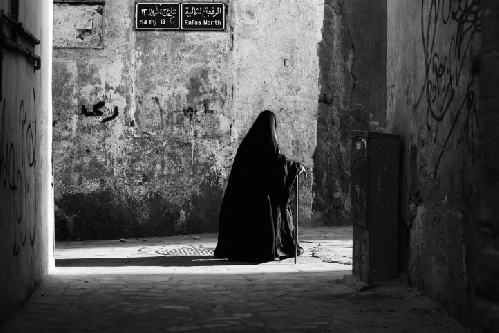Reprinted from Foreign Policy in Focus
The global press has been heralding the recent December 13 vote in Saudi Arabia as a breakthrough for women, since it was the first time in history that Saudi women have been allowed to vote.
But was this vote really a significant step forward?
First, let's consider the Saudi electoral system within the context of an absolute monarchy. The ruler is always a male and inherits his position. All powerful government positions from ministers to governors are appointed by the king. The 150-member Consultative Council, known as the Shura Council, is also appointed and has only advisory power.
The recent election was not for any body with legislative power. It was for municipal councils that merely provide advice to government authorities about local services such as parks, road maintenance, and trash collection. And one-third of even these council seats are appointed, not elected.
This election marks only the third time in the nation's history that Saudis -- men or women -- have been allowed to vote, and the first time women have participated. While heralded overseas, voting for municipal councils back at home is greeted with a big yawn.
The hidden story about the election is the abysmal turnout. Less than 10 percent of all eligible voters bothered to cast a ballot -- and worse yet, less than 1 percent of all eligible Saudi women voted. Little wonder that of the 2,106 seats up for grabs, less than 1 percent of the winners were women.
Instead of just profiling the handful of female winners, the press should really be talking to the 99 percent of women who didn't vote. They would find that some women didn't vote because they found the process complicated or they couldn't get to the segregated polls, since they aren't allowed to drive. They would find that some didn't feel it was worth their time, since the councils have so little power.
And they would learn that some women didn't vote because they were boycotting the election.
"How could I be elected if I can't drive, if I can't have the right to custody of my children, when so many issues touching our daily lives aren't resolved?" asked university lecturer Aziza al-Yousef. "Women are half citizens in this country. I think we need to change the whole system."
Al-Yousef is one of the few Saudi women brave enough to speak out in a country where voicing opposition can land you in prison, but her views reflect the attitudes of many.
Saudi women are still trapped in a male guardianship system under which all women are treated as minors. They aren't allowed to marry without the permission of their guardians. And unlike men, they don't have a unilateral right to divorce and often face discrimination in relation to child custody.
Women cannot obtain a passport or travel without the approval of a male guardian -- usually a husband, father, brother, or son. Enrollment in education at all levels requires a guardian's permission. A woman can't be released from rehabilitation or prison to anyone but her guardian. If the guardian refuses to accept the woman, as often happens, she remains imprisoned.
Saudi men can have up to four wives, and there's no prohibition against child marriage. A push by human rights activists to make it illegal to marry girls under 15 years old was crushed by the Grand Mufti. A prominent cleric and member of Saudi Arabia's highest religious council, Dr. Salih bin Fawzan, said that girls can be married "even if they are in the cradle."
Schools are segregated. And although Saudi women have made great gains in education -- they now comprise 60 percent of the nation's college students -- women are less than 20 percent of the labor force. Employers often require male guardians to approve the hiring of female relatives, and most women are confined to jobs considered "appropriate" for their gender, like healthcare and education.
(Note: You can view every article as one long page if you sign up as an Advocate Member, or higher).






